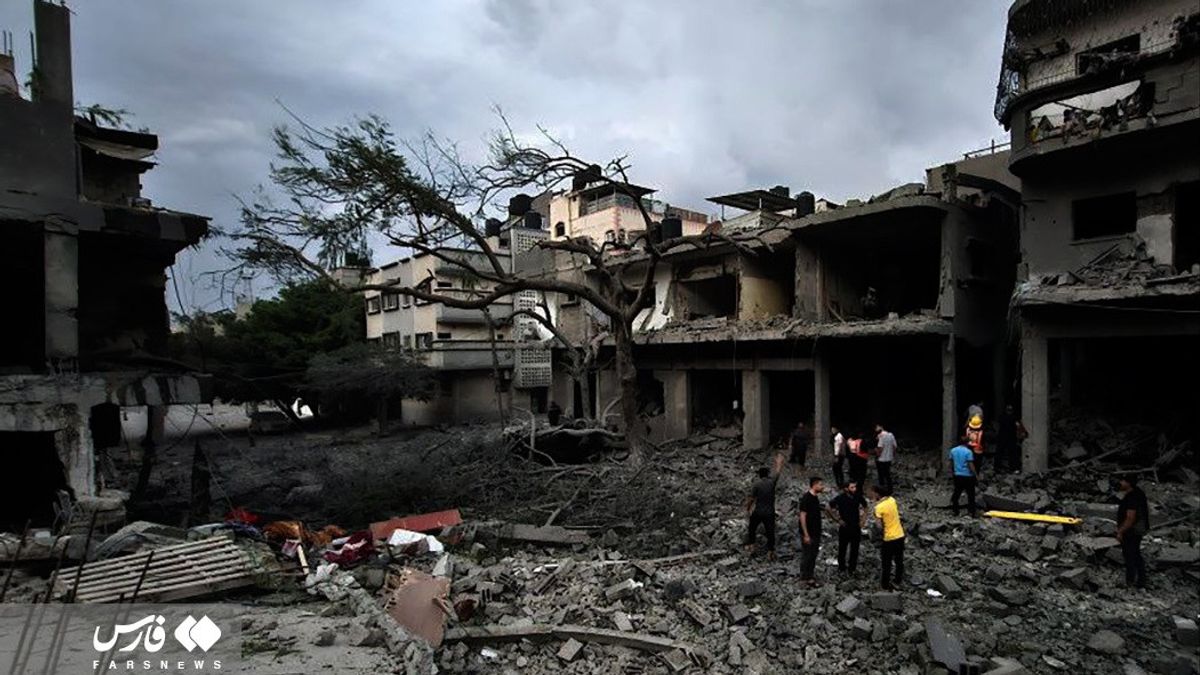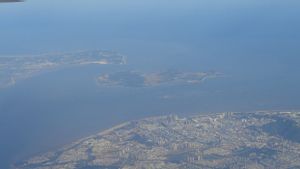JAKARTA - A senior United Nations official said the rebuilding of Gaza, Palestine would cost nearly US$40 billion (Rp641,180,000,000,000), urging public and private sector donors to contribute to the postwar plan.
Assistant Secretary-General and Director of the Regional Bureau of the United Nations Development Program (UNDP) for Arab Countries Abdullah Al Dardari said the initial phase of Gaza's recovery which lasted for three to five years would cost around US$2 billion (Rp32,059,000,000,000). The funds will mainly be used to clean up debris, ensure basic services continue to run and begin reconstruction of several houses.
"Some donors should be aware that they should take the risk by investing a little money," he told The National News, as quoted May 3.
"That's why we say let's have 2 billion US dollars (Rp32,059,000,000,000) (at first), a process that allows us to provide a dignified living for one million Palestinians, which will increase that amount to US$3 billion (Rp48,088,500,000,000), but still, it's still within reasonable limits," he explained.
He further said that the long-term reconstruction plan would take decades to complete, he said, adding the agency was faced with funding issues.
"We are faced with a dilemma but no one wants to invest large amounts of money in Gaza, before they see a serious and credible peace process. But to see a serious and credible peace process, once again, we don't know what is needed," said Al Dardari.
The Gaza Strip has been brutally bombarded by Israel since early October. Areas in the enclave have become debris, with more than 34,500 people killed, while some others are still trapped under the rubble.
The cleaning and rebuilding of the destroyed area will take a long time and be dangerous due to the threat of mines and missiles buried under collapsed or damaged buildings.
The UNDP team is currently in Gaza to assess its impact. They found that 26 out of 30 cities had stopped working, said Al Dardari.
Civil service and society "no longer have any engines, they can't manage solid waste, they can't provide any city services".
So far, UNDP estimates more than 70 percent of homes in Gaza have been destroyed. However, the agency warned that the figure could reach 80 or 90 percent if the war continued.
Al Dardari said the Israeli war in Gaza had produced 37 million tonnes of debris, mostly containing unexploded bombs, which took more than a decade to eliminate.
"In the 2014 war, we had 2.4 million tonnes of debris after 51 days of fighting. Currently, we have 37 million tonnes and the number continues to grow every day," he explained.
Uncertainty regarding the outcome of the peace process has left the international community unsure of when to start providing the service to civilians, he added.
SEE ALSO:
"We are making very complicated plans, which we call just-in-time planning. We have to start working to get rid of debris as soon as the first day," he explained, referring to the day after the war ended.
Al Dardari said the work would begin in northern Gaza so that refugees could return to their homes.
"The most dangerous time in a post-conflict situation is when there is a ceasefire and we are not prepared to take action to seek a livelihood, rebuilding, and economic recovery."
The English, Chinese, Japanese, Arabic, and French versions are automatically generated by the AI. So there may still be inaccuracies in translating, please always see Indonesian as our main language. (system supported by DigitalSiber.id)














